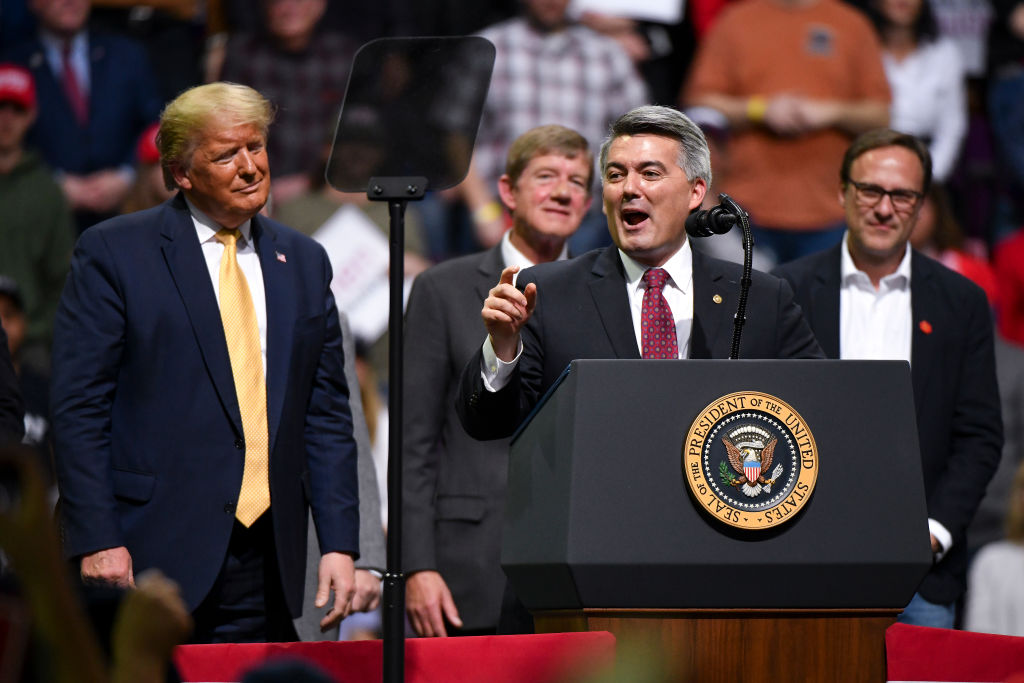Sen. Cory Gardner will self-quarantine after contact with coronavirus patient


A free daily email with the biggest news stories of the day – and the best features from TheWeek.com
You are now subscribed
Your newsletter sign-up was successful
Sen. Cory Gardner (R-Colo.) on Tuesday evening announced he is self-quarantining after coming in contact with a constituent who later tested positive for the COVID-19 coronavirus.
In a statement, Gardner said he was "alerted today by the Tri-County Health Department that a Coloradan who visited my Washington office for a constituent meeting has tested positive for coronavirus. While I am not showing any symptoms at this time, I have made the decision to self-quarantine out of an abundance of caution with an effective date of March 11."
Gardner added that the "health and safety of Coloradans and Americans across the nation is my top priority, and I will continue working to make sure Congress provides the resources needed to help combat the spread of COVID-19."
The Week
Escape your echo chamber. Get the facts behind the news, plus analysis from multiple perspectives.

Sign up for The Week's Free Newsletters
From our morning news briefing to a weekly Good News Newsletter, get the best of The Week delivered directly to your inbox.
From our morning news briefing to a weekly Good News Newsletter, get the best of The Week delivered directly to your inbox.
A free daily email with the biggest news stories of the day – and the best features from TheWeek.com
Catherine Garcia has worked as a senior writer at The Week since 2014. Her writing and reporting have appeared in Entertainment Weekly, The New York Times, Wirecutter, NBC News and "The Book of Jezebel," among others. She's a graduate of the University of Redlands and the Columbia University Graduate School of Journalism.
